International Conference on curriculum and Educational Instruction 2024
APROCEI ICCEI
17-19
MAY
2024
Asia Pacific University of Technology and Innovation Kuala Lumpur, Malaysia
Collaborated with ,
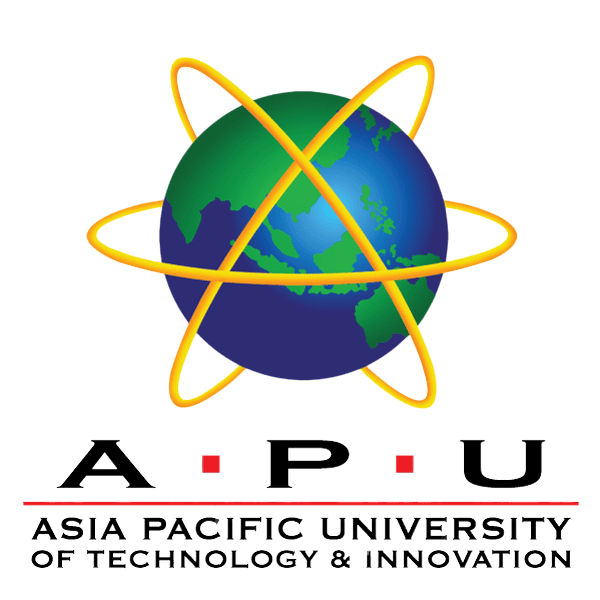
Supported by ,
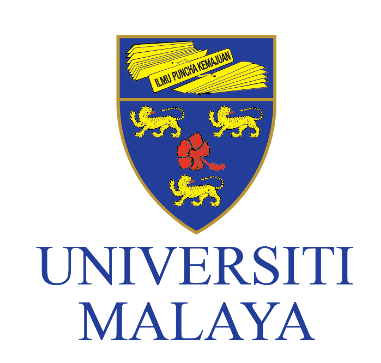
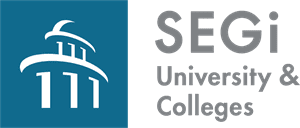
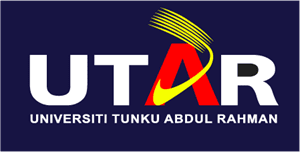
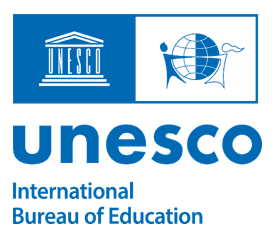
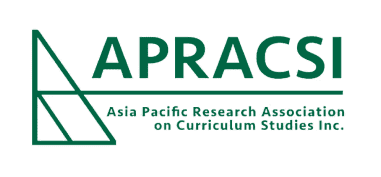
Theme:
Education Towards
Building Sustainability
Thinking and Resilience
Conference Sub-themes
- Sustainability and overcoming adversity
- Addressing Learning loss
- Character education
- Humanising education
Feature
- 6 Keynotes
- 12 Workshops
- In-person learning
- Virtual Paper Presentations

Aim
opportunities for collaboration on Curriculum and instruction across Asia Pacific.
Potential Participants

CALL FOR PAPER
Interested individuals are invited to submit papers aligned with the conference theme and subthemes. The paper can be either research based or conceptual. Research paper must have clearly stated research goal(s), research questions, methodology and findings. Conceptual paper must have clear objectives, theoretical or conceptual framework and critical analysis. Abstract must not be more than 250 words. Please state the subthemes of the paper and keywords at the bottom of the abstract and submit to the conference secretariat. Conference proceedings with abstract will be published online.
Important Dates:
- Deadline for abstract: 19 April 2024
- Latest Notification of acceptance : 30 April 2024
- Deadline for submission of pre-recorded presentation (not more than 15 minutes): 1 May 2024
- Deadline for submission of full paper:
Submit abstract to the following email: aproceiiccei@gmail.com
The file name should consist of name, mode of online or on-site
SUBMISSION OF PAPER FOR PUBLICATION
- PROSPECTS, Comparative Journal of Curriculum, Learning, and Assessment, Scopus
- Malaysian Online Journal of Educational Management (MOJEM), Scopus, MyCite, DOAJ
- Malaysia Journal of Qualitative Research (MJQR), MyCite indexed journal
- Asia Pacific Journal of Business, Humanities and Education (APJBHE), indexed peer reviewed
- Malaysian Online Journal of Educational Science (MOJES), ERIC, MyCite, Google Scholar
- Asia Pacific Journal of Curriculum Review (APJCR), peer reviewed
- Jurnal Kurikulum & Pengajaran Asia Pasifik, peer reviewed, accepts both English and Malay language
Registration
The registration process is now open – registration fees are listed below.
Program
Day 1: CONFERENCE WORKSHOPS
17 May 2024 (Friday)
Conference fee include maximum of three workshops. Each session consists of four workshops, each workshop is 2 hrs.
Please choose one workshop per session. Limited workshop per session is in hybrid mode.
* The information on the website remains accurate up to the current date.
Session II: Morning
11.00 am – 1.00 pm
Building STEM competence the fun way (Dr Janchai Yingprayoon)
Time and Sustainability in Mahua Literature * Hybrid Mode
( Dr Florence Kuek, Univeristy of Malaya )
Generative AI in education
(Prof Dr Abtar and team, APU)
Program evaluation in curriculum
(Dr Chin Mei Chin, Malaysia)
Session III: Afternoon
2.30 pm – 4.30 pm
Generative AI in education
(Prof Dr Abtar and team, APU)
Storytelling towards sustainability thinking
(Ms Khaw Choon Ean)
Future Curriculum * Hybrid Mode
(Hugo Labate, IBE consultant)
DIY STEM Toys for the Early Years
(Dr Ong Dee Jean, PhD – Alumni, Mahidol University, Thailand)


DAY 2 & 3
Speakers and Facilitators

Amelia Fajardo, Dr
Prof Dr Amelia C Fajardo is currently an associate professor and faculty-in-charge for Curriculum studies Area, College of Education, University of the Philippines Diliman, Quezon City, Philippines.
She graduated with Doctor of Philosophy in Education (major in Curriculum and Instruction) from Hiroshima University Japan in 1998. She has received various outstanding scholar and academic excellence awards through the years.
On top of all these, she is a Fulbright Senior Research Fellow (2015-2020). She has also received the Erasmus Mundus Mobility for Asia Fellowship Grant, 2009. Dr Amelia is very active regionally; she was country representative in various UNESCO conferences on Teacher Education from 2002 to 2010. Dr Amelia has carried out numerous consultancies work such as Module Development for FNRI-DOST (2021), Curriculum Development Workshop for a State University-wide Professional Development. 2022, Development of Curriculum Model for Human Rights Education and Human Rights Modules (2022), Muslim Education Initiatives Review, AFP Philippine Defense Reform Project on Curriculum Development System for AFP.
Her research interests include Alignment of Learning Outcomes in Basic Education Social Studies through Curriculum Mapping (2021), Curriculum evaluation in higher education/tertiary education, Re-designing Pre-service Teacher Education Curriculum for the Indigenization of the Elementary School Science etc. She was the immediate Past President, Pacific Early Childhood Education Research Association (Philippine chapter) and is the Founding Executive Director, Asia Pacific Research Association on Curriculum Studies, Inc and founding President, Curriculum Studies Association of the Philippines, Inc. She has presented papers in several national and international conferences in teacher education, higher education, and curriculum studies.
Community-based Curriculum Design and Teacher Education
Amelia C. Fajardo, Ph.D.
UP College of Education
Diliman, Quezon City, Philippines
Relevance and responsive are two important features of an Intended Curriculum. As such, the curricular elements must be drawn and based on the community to which it will be implemented. This ensures that essential competencies intended to be developed will be used by the students in their respective community.
In countries where there is one curriculum to be implemented throughout the country, relevance becomes an issue. To address this issue, a community-based elementary science curriculum was developed. Situational analysis were done in selected communities to determine how the curriculum could be made relevant in terms of its curricular elements. Examplar module was developed.
The redesigned curriculum has several implications to Teacher Education, which are outlined and discussed in the paper.

Chin Mei Chin, Dr
Title of Workshop: Program Evaluation in Curriculum
Abstract:
The content of this workshop covers an introduction to the field of program evaluation, role of program evaluation and approaches to program evaluation. Approaches to program evaluation that are commonly used in curriculum will be elaborated on. The workshop also includes a group activity to select the best approach to program evaluation for a particular education program. As such, workshop participants are encouraged to bring along descriptive information of an education or curricular program that they would like to evaluate on.

Conrad Hughes, Dr
Conrad Hughes (MA, PhD, EdD) is the Director General of the International School of Geneva, the oldest international school in the world. Conrad is a Senior Fellow at UNESCO's International Bureau of Education, a member of the advisory board for the University of the People and research assistant at the University of Geneva's department of psychology and education. He teaches Theory of Knowledge. He has twice been nominated as an international ‘edruptor’ by ISC. He is the author of numerous articles in peer-reviewed journals. His most recent books are Education and Elitism: Challenges and Opportunities (2021, Routledge), Understanding Prejudice and Education: The Challenge for Future Generations (2017, Routledge) and Educating for the 21st Century: Seven Global Challenges (2018, Brill).
BUILDING A HOLISTIC CURRICULUM
This talk outlines the main themes and ideas educators should consider when constructing a curriculum. These include global themes such as inclusion, sustainable development and education for peace, principles of neuroscience and cognitive psychology that inform us about learning and creative, dynamic and forward-looking assessment strategies.

David Wilgenbus
David Wilgenbus, astrophysicist by training, is an expert in the field of Climate change education, with 20+ years of experience in curriculum design and teachers’ professional development. David Wilgenbus is a member of the Scientific council of the French ministry of Education and works as Executive Director of the Office for Climate Education (OCE), a center under the auspices of UNESCO and an Observer within the IPCC. The OCE (www.oce.global), based in Paris, France, aims at supporting education systems worldwide in the implementation of quality climate change education in primary and secondary schools, by providing educational resources based on IPCC reports, teachers’ professional development, communities of practices, research and evaluation, and by implementing national or regional pilot projects in coordination with local partners. OCE’s projects have been implemented by more than 100,000 classes and 2 million students.
Title: For an evidenced-based climate change education.
Duration: 30 min
Abstract:
Climate Change Education (CCE), whose significance is underscored in Article 12 of the Paris Agreement, is playing an increasingly prominent role in climate change adaptation strategies. After numerous years of trial and experimentation, the international community now agrees on the major objectives of CCE (speaking equally to the head, the heart, and the hand), as well as on a strategic framework to implement it (the Greening Education Partnership). David Wilgenbus will provide an overview of what educational sciences say about CCE: what are the key concepts and skills to master, what obstacles exist, what pedagogical approaches have proven effective? What lessons have been learned from projects implemented in the field?
Title: Understanding the Greenhouse effect in primary and secondary school
Duration: 2 hours
Max. number of participants: 30
Abstract:
David Wilgenbus will facilitate a hands’on workshop with inquiry-based pedagogy on the topic of greenhouse effect. The workshop will allow participants to express their conceptions of the greenhouse effect mechanism and to experience different ways of studying this phenomenon in class: experiment, modelling, role playing game, document study. They will develop a better understanding of the greenhouse effect and discuss the benefits and limitations of each approach.
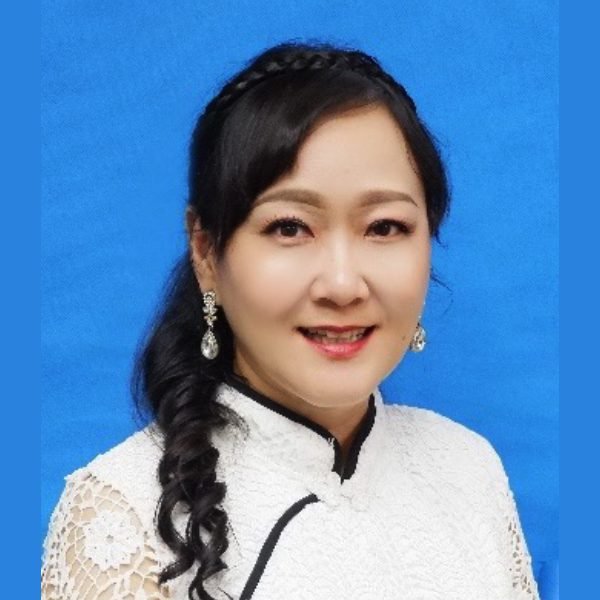
Florence Kuek, Dr
Dr Florence Kuek is a Senior Lecturer at the Department of Chinese Studies, Faculty of Arts & Social Sciences, Universiti Malaya. She is the Assistant Secretary of the Association of Professionals in Curriculum and Education Instruction (APROCEI), a committee member of the Writers Association of Chinese Medium Malaysia, a member of a few international associations, and a reviewer for international journals. Florence’s research foci include contemporary Chinese literature, literary criticism, L2 language teaching and learning, and education. Her latest research projects include Han Suyin studies; ethical literary criticism; Malay and Chinese literature; engagement with the new media and AI literature, and language teaching and learning issues in China. Besides contributing to Web of Science and SCOPUS-indexed journals, Florence is also involved in several bilingual or trilingual translation works in Malay, English, and Chinese languages.
Workshop Title: Time and Sustainability in Mahua Literature
Abstract
The transformative sustainability mentality involves an attitude and natural disposition of commitment to change while making the best use of available resources. It is manifested in texts and analytical frameworks that educators are engaged with, in the retelling and interpretation of family or community stories across time and space. This workshop focuses on the recurring discussion of time and memories in selected Chinese literature and demonstrates how a sustainability mentality and textual interpretation can be applied in a pedagogical context.

Hugo Labate
Graduate from the Science School of the University of Buenos Aires with a further MS in research methodology.
Former Director of the Curriculum Section at the Ministry of Education-Argentina. Has conducted training of teams for the consultation and production of curriculum frameworks as well as proposals for a competency-based curriculum for middle and high school in several provinces of Argentina.
Consultant for curriculum development and training of national teams to the IBE-UNESCO in several country-based and interregional activities in Asia, Africa and Latin America, including the design and delivery of b-learning training courses for curriculum teams under the IBE-UNESCO Diploma on Curriculum design and development.
Currently in charge of strategic planning actions for improving STEAM learning in Buenos Aires city.
Presentation Title: Personalising curriculum
Abstract: Avenues for tailoring curriculum to different needs are discussed as well as the challenges and opportunities that arise from the use of platforms and AI-based algorithms to ensure that all students receive a balanced and relevant curriculum.

Janchai Yingprayoon, Dr
Dr. Janchai Yingprayoon received a German Government Scholarship to study a Ph.D. in Laser Physics from Free University in Berlin, Germany. Involved in the International Council of Associations for Science Education (ICASE) since 1979, he became an ICASE Regional Representative in 1993, and later served as ICASE President from 2004-2007.
He received an outstanding university lecturer award from the King of Thailand in 1982, an ICASE Distinguished Service Award at ICASE World STE2013 Conference, Malaysia in 2013 and an ICASE Lifetime Achievement Award at ICASE World STE2023 Conference, Dubai in 2013. He has been working as an adjunct professor at Guangxi Normal University and Guilin University of Aerospace Technology in Guilin, China for several years. He has worked extensively with UNESCO and is a creative and humorous lecturer who makes learning science fun and meaningful. He is a well-known international speaker and has been invited to many international conferences as an honorable keynote speaker.
Janchai has conducted innovative workshops in 28 countries around the world. He is currently working as a Director of STEM Education Center – Prince of Songkla University Wittayanusorn Suratthani School, Suratthani Province, Thailand.
Presentation Title: Building STEM Competence the Fun Way
Abstract:
STEM education not only brings knowledge in Science, Technology, Engineering and Mathematics in the clssroom, but it also always develops three major skills: logical thinking, reasoning ; and problem-solving – finding solutions to complex issues, all of which is a basic needs for human in the 21st Century. Four components of classroom teachings the fun way: Observation, Curiosity, Sense of humor and creativity, are introduced. Education development with a focus on creativity and innovation allows us to solve problems and modify the living system to be able to adapt to various situations to survive. Applications of Innovative Strategies in teaching–learning process using SCAMPER, a technique for developing creativity together with educational innovations, will help us survive in a VUCA world.
Workshops on Building STEM Competence the Fun Way
Abstract
Most students enjoy playing with toys, manipulative materials, and magic. Appropriate recreational items can be found to stimulate intellectual curiosity, to develop problem solving and thinking skills, to promote discovery as well as to unleash creativity using STEM way of approach. The workshop will show how to make science and mathematics lessons more meaningful, effective, and interesting, how to cultivate intrinsic motivation for learning science, and how to develop thinking abilities, problem-solving skills, and creativity. This workshop is highly interactive with lots of STEM toys and hands-on activities using locally produced low-cost high-tech STEM materials.
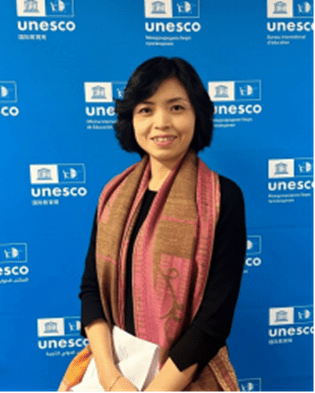
Ji Lili
Lili Ji is Programme Specialist and the Head of "Capacity development – Academic Partners" Unit at UNESCO’s International Bureau of Education (IBE). She coordinates the IBE’s technical interventions in curriculum transformation programmes, in response to specific country requests. She is in charge of the IBE-supported Regional Master’s in Curriculum, a collaborative initiative with universities across Africa, the Arab region, Asia-Pacific region, East Europe and Central Asia, Latin America and the Caribbean. In this connection, she coordinates the production of specific curriculum knowledge products, training materials, and their implementation. Lili Ji holds a PhD in Sociology of Education from Sciences Po Paris (France). She also holds a Post Graduate Diploma in Curriculum Design and Development from the IBE and Catholic University of Uruguay partnership.
Abstract
In an increasingly interconnected and diverse world, promoting education for international understanding and peace is paramount.
In the light of UNESCO’s new Recommendation on Education for Peace, Human Rights, and Sustainable Development, this keynote underscores the multidisciplinary approach to reconceptualizing curricula, advocating for a spiral curriculum integrating peace education from early childhood to higher levels of education. Various subjects offer opportunities to engage real-world issues, fostering critical thinking and empathy. Case studies from countries like Rwanda, Colombia, and the Philippines demonstrate practical peace education initiatives at all levels.
The keynote also emphasizes the role of teachers in bringing curricula to life and the importance of assessing learning outcomes. Ultimately, it calls for a comprehensive strategy encompassing socio-political and individualized approaches to nurture a culture of peace and international understanding.

Khaw Choon Ean
Mrs Khaw has worked before for the Ministry of Education of Malaysia for 26 years as a teacher, curriculum planner and project manager for projects ranging from pre-school curriculum, indigenous education, thinking skills, pedagogy to Futures Studies and Smart Schools, working with international agencies such as the British Council, UNICEF, World Futures Studies Federation and TOCFE, Inc. Mrs. Khaw was trained as a trainer of trainers at College St.Marks and St.John in Plymouth, England, under World Bank and as a TOCFE facilitator by TOCFE, Inc. in Monterrey, Mexico.
She has presented at TOCFE educational workshops in USA, UK, Mexico, Thailand, Singapore, Philippines and Korea as well as throughout Malaysia. Mrs. Khaw has had a distinguished career in education, training and sports and was awarded the International Olympic Committee’s Women Of Achievement Diploma Award in 2004. She is also the author of the book Thinking Smart (Pelanduk, 2005; Dongyang Books, Korea, 2006, Goldratt 2015), and award-winning novels, Nine Lives and Magic Eyes (Utusan Publications, 2006, 2012). Her self-illustrated children’s picture books have also won many awards and she also has short-stories published from 1980-2024 in national magazines and anthological collections at home and abroad. She is well-known as a storyteller for children.
Introduction
Long ago, learning was from grandparents, family, parents, and friends. And mostly they were great storytellers!
Today, storytelling can be a useful, powerful pedagogical tool in education to develop values that encourage sustainability and transformation.
The theoretical and conceptual framework underlying this workshop is that different pedagogical tools can help in building the bridge towards implementing sustainability in education as well as in society because the use of storytelling in educational development means that traditional knowledge can be transferred from one generation to the next.
Objectives
In this workshop participants will learn the techniques in storytelling that can:
• help engage students;
• develop their imagination and creativity;
• foster cultural understanding;
• improve their language skills;
• encourage critical thinking; and
• develop their empathy and emotional intelligence.
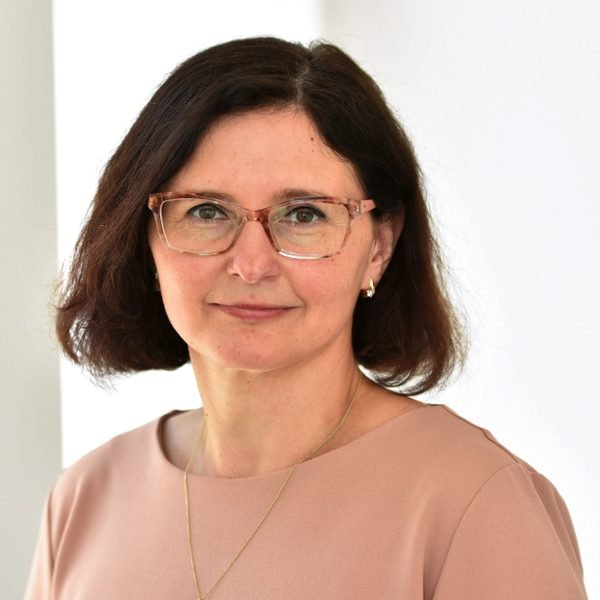
Lina Kaminskienė
Lina Kaminskienė is a professor at Vytautas Magnus University, Education Academy. She is currently involved in several national and international expert groups related to teacher education and curriculum reform. In 2023 Lina took the position of a Vice-President of The Lithuanian Educational Research Association (LETA). Her research and teaching topics are related to the development and implementation of educational innovations, self-regulated, personalized learning, teacher education and their professional development, teacher professional vision. She implemented and coordinated more than 20 national and international projects, contributing to the development of educational systems and organizations.
Lina is the author of more than 80 scientific articles and 5 monographs. Member of the editorial board of scientific journals Pedagogy, International Journal of Educational Technology in Higher Education, Sodobna Pedagogy, Frontiers in Education.
Modelling a sustainable education for students from vulnerable groups: insights from covid and post-covid study in three Baltic countries
In the critical contexts of educational transformations (like, covid-19), the sustainability of educational processes depends on specific factors. To reveal the factors ensuring the sustainability of educational processes, the study was conducted in three Baltic countries (Lithuania, Latvia, and Estonia) involving 1432 subject teachers from public education schools. The three countries were chosen due to their similar historical and economic contexts and at the same time growing differences in educational achievements.
The results of the study highlight that self-regulatory and collaborative learning has a sustainable, strong impact on the achievements of pupils with emotional and learning difficulties in various (stable and unstable) educational environments in all three countries.
The education processes of heterogeneous groups always presuppose the need for educational support. It is, therefore, important to promote teachers' confidence in the abilities of self-regulatory learning of all pupils, recognizing their uniqueness, while treating difficulties as barriers that are overcome by universal modeling of educational processes.

Patrick Charland, Prof Dr
Patrick Charland, Prof. Dr.
Cochairholder, UNESCO Chair for Curriculum Development
Université du Québec à Montréal
CANADA
Transforming Education Systemically: Insights from PISA 2022
The presentation aims to address various issues raised by the publication of the latest results from the Program for International Student Assessment (PISA 2022). Through the study of several national cases, it is relevant to adopt an analytical perspective focused on the nature and transformation processes of curricula, particularly the levels of program implementation and the need for reforms adopting a systemic perspective.
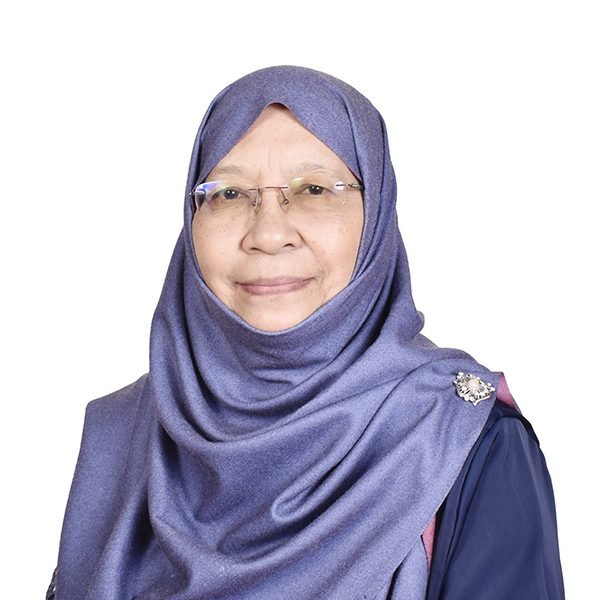
Saedah Siraj, Professor Dr.
Professor Dr. Saedah Siraj, an Emeritus Professor of Curriculum Development and Instructional Technology at the Faculty of Education, University of Malaya, holds a distinguished career in academia spanning four decades. Recognized for her significant contributions, she was honored as the Malay Language Academic Laureate in 2019 and received the Malaysian Women Icon for Education in 2022.
Throughout her illustrious career, Professor Dr. Saedah Siraj has demonstrated unwavering commitment to education. She served as a lecturer for 40 years and held the prestigious position of Dean of the Faculty of Education from 2009 to 2014. As a visionary leader, she founded the University Malaya Centre for Family Development in 2003, contributing to the university's commitment to holistic education.
An esteemed academic, Professor Dr. Saedah Siraj holds a B.A (Hons) and M.Ed from the University of Malaya, along with a Ph.D. in Curriculum and Instruction from the University of Pittsburgh, USA, conferred in 1990. She also assumed the role of Head of Education Document Standard ECCE for the Malaysia Qualification Agency.
Her research interests encompass cutting-edge areas, including future curriculum design, the innovation of models and modules for mLearning curriculum, futures studies with a focus on indigenous groups, and education for the aging population. Professor Dr. Saedah Siraj stands as a pioneer in Malaysia, having introduced the DDR approach of research studies and spearheading mLearning initiatives in Asia since 2002. Furthermore, she has played a pivotal role in the application of Futures Studies in the realm of education.
As part of her commitment to advancing education, Professor Dr. Saedah Siraj successfully established the UM Specialist Center for Education (UMSpCE) at the Faculty of Education. This center serves as a hub for research, development, and expert services, contributing significantly to the educational landscape in the country.
Her impact extends beyond the academic realm, as Professor Dr. Saedah Siraj has supervised over 70 Ph.D. graduate students and authored more than 35 books and 150 articles, both nationally and internationally. Recognizing her excellence in academia, she was selected for the World Class Professor 2022 program at a university in Indonesia.
Currently serving as the President of the Curriculum Association of Malaysia, Professor Dr. Saedah Siraj continues to champion innovative approaches to curriculum development, leaving an indelible mark on the field of education.
Futurescape Explorations: Inspiring Malaysian Elementary School Pupils through an Inventive Local Curriculum
This paper explores the transformative journey of implementing an inventive local curriculum, titled "Futurescape," to inspire elementary school pupils in Malaysia. Rooted in the rich cultural tapestry of Malaysia, Futurescape aims to prepare students for the future by seamlessly integrating creativity, innovation, and local relevance into the curriculum.
The curriculum emphasizes creative thinking, problem-solving, and cultural context, fostering an environment where students actively engage with their local community. Through project-based learning, students embark on a dynamic exploration of real-world challenges, instilling a sense of curiosity and a passion for learning.
Futurescape also incorporates technology, embracing the digital age while ensuring cultural relevance. Virtual reality, augmented reality, and interactive learning tools are employed to create immersive educational experiences. The curriculum aligns with global educational trends, emphasizing the importance of sustainability, inclusivity, and adaptability.
The impact of Futurescape on student engagement, creative expression, and academic achievement will be discussed including positive outcomes, showcasing the potential of an inventive local curriculum to shape the educational landscape in Malaysia. This paper contributes to the discourse on future-ready education, offering insights into the fusion of innovation, culture, and technology to inspire the next generation of Malaysian learners.
Keyword: Futurescape, inventive local curriculum, dynamic exploration, passion for learning

Datuk Dr. Habibah Abdul Rahim
Datuk Dr Habibah Abdul Rahim is currently the Director at SEAMEO (Southeast Asian Ministers of Education Organization) Secretariat. She is also Professor Honourary at Kyungwoon University, Honourary Fellow at MASA Institute, Board Member of Teach for Malaysia Foundation, and Board Member of Dewan Bahasa dan Pustaka.
Habibah is the former Director General of Education Malaysia and has served the Ministry of Education Malaysia for more than 34 years before retiring on 6 April 2021. She began her career as a secondary school teacher and among posts held are the Head of the Delivery Management Office, Executive Director of the Education Performance and Delivery Unit, Director of the Educational Planning and Research Division, and Deputy Director General of Education (Policy and Curriculum). She has extensive experience in policy development, macro planning, programme implementation and evaluation.
She played an instrumental role in the development of the Malaysia Education Blueprint 2013-2025, Education Development Master Plan 2006-2010 and Education Development 2001-2010.
Her publications (with other authors) include : 21st Century Competencies and Structural Education Reform, in APEC 2018 Report on Education and Economic Development (2019); and Model, Instruments and Unity Index and their Impact on the Unity Policy, in Creative Education 2019, 10(12)
From Learning Recovery to Education Transformation: Data and Evidence on Foundational Learning
The school closures due to the COVID-19 pandemic have impacted the education of more than 152 million children in Southeast Asia. This compounded the learning crisis that has persisted even before the pandemic drawing from the findings of SEA-PLM 2019 pre-pandemic and PISA 2022 post-pandemic. Southeast Asia, with its huge variances among and within countries, have made progress to address learning recovery. However, there is still an urgent need to mitigate the effects of the pandemic on children’s foundational learning. Policies and programmes, effective practices, and issues surrounding foundational learning were unpacked by the SEA Ministries of Education and foundational learning experts ranging from empowering teachers, supporting learners, transforming curriculum, early childhood learning, and financing primary education during the High-Level Regional Conference on Foundational Learning this year in Cambodia. The platform provided a rich set of perspectives to key actors in the education arena on the bottlenecks and opportunities to address the learning crisis. To support SEAMEO Member Countries in their ongoing initiatives on foundational learning, SEA-PLM 2024 has expanded into three pillars which now includes strengthening collaboration and capacity building on the utilization of the findings. Further, SEAMEO, under the ASEAN-UK Supporting the Advancement of Girls’ Education (SAGE), will be onducting a rapid scoping study on out-of-school children and youth (OOSCY) to understand the impact of the pandemic to OOSCY and provide policy recommendations and develop targeted interventions. SEAMEO and its Member Countries, through these programmes, are committed to putting forward evidence-based policies and programs to ensure the strong foundation of learners in Southeast Asia.

Ong Dee Jean, Dr
Dr Ong Dee Jean worked as a kindergarten teacher, trainer, curriculum developer and university lecturer. She once founded an English literacy centre in Malaysia based on the researching findings of her master’s thesis. She developed the Amazing Kids Accelerated Learning Preschool Programme and was the departmental head in the organization to improve the existing preschool curriculum. Dr Ong completed the PhD in Science and Technology Education at Mahidol University, Thailand. As part of her doctoral thesis, she was one of the finalists nominated for the Innovative Thesis Award. She is well-versed with phonics, reading and literacy for the early years and has successfully developed a reading program and authored more than 30 reading books for preschoolers. Her research interests are in the development of teachers’ pedagogical content knowledge in game-based learning. She is well-travelled and have conducted training workshops for preschool and early elementary school teachers in Thailand, Bhutan, Nepal, India, Turkey and Russia.
DIY STEM Toys for the Early Years (limited to 30 participants only)
DIY STEM toys are easy to make and fun to play with. DIY STEM toys are excellent tools to introduce the fundamental concepts of Science, Technology, Engineering and Mathematics concepts to the early years. Children are curious learners. Engaging children in creating their own DIY STEM toys can fuel their innate curiosity. DIY STEM toys offer the children many opportunities for hands-on learning and the freedom to express their creativity. They also help in the development of children’s fine motor skills, critical thinking and problem-solving. As a result, playing with DIY STEM toys can encourage children to approach STEM with enthusiasm, making learning a fun, playful experience. During the workshop, you will:
- Learn to make a series of DIY STEM toys using everyday materials, and
- Engage in playing the Mr. Wolf educational card game to learn to tell time.
Upon joining this workshop, you will be provided with a goodie bag to create your own DIY STEM toys.
This workshop is limited to 30 participants only. For those attending the workshop please bring with you the following:
- A pair of scissors;
- One toilet roll;
- Glue stick;
- Marker pen.
DAY 3 Forum Panelists
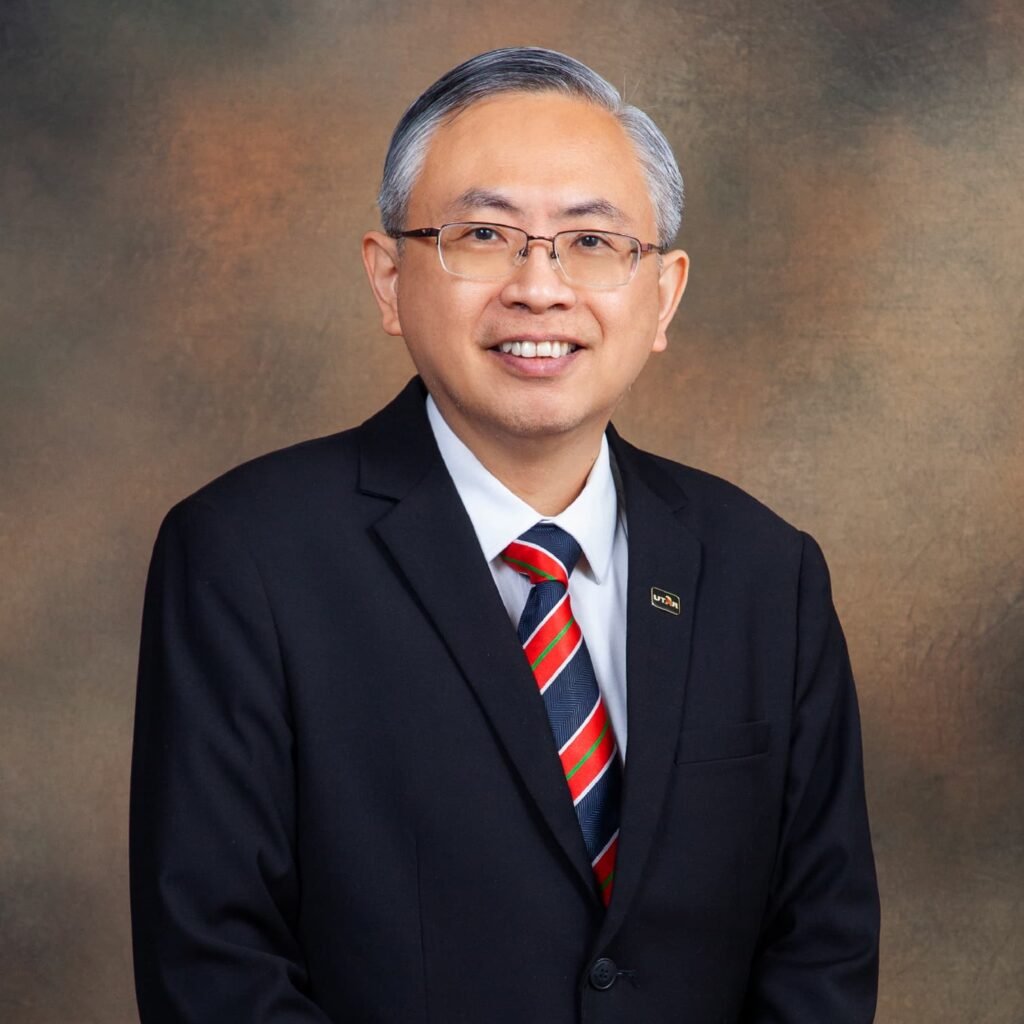
Ir. Professor Dato' Dr. Ewe Hong Tat
Professor Ewe Hong Tat obtained his Bachelor of Engineering (1st Class Hons) degree in Electrical Engineering from University of Malaya, Malaysia, Masters of Science degree in Electrical Engineering and Computer Science from M.I.T., USA and PhD degree from Multimedia University, Malaysia.
He had worked before in Motorola Penang, Intel Penang, MIT’s Research Laboratory for Electronics, University of Malaya and Multimedia University (MMU) where his last position held in MMU was Vice President (Academic). He was Vice President (Internationalisation and Academic Development) of Universiti Tunku Abdul Rahman (UTAR) from July 2009 to August 2019. He is currently the President/CEO of UTAR and also a Senior Professor of Lee Kong Chian Faculty of Engineering and Science of UTAR. He was also the recipient of a number of awards including The Young Scientist Award of URSI (International Union of Radio Science) in 1996, The Outstanding Young Malaysian Award 2005 for Academic Leadership and Accomplishment, and The Toray Science and Technology Award by Malaysian Toray Science Foundation in 2011. He is currently a Fellow of Academy of Sciences Malaysia (ASM), Fellow and President of ASEAN Academy of Engineering and Technology (AAET), Chairman of Science, Technology and Innovations Consultative Committee of ACCCIM, Former Chair of IEEE Geoscience and Remote Sensing Society Malaysia Chapter, Educational Counsellor and Regional Chair (Malaysia) of MIT Educational Council, Former President of MIT Club of Malaysia, and was a Council Member of Malaysia Qualifications Agency (MQA) from 2013-2018.
In publication, he has published in books, international journals and conferences, and newspaper and magazine column articles. His research interests include microwave remote sensing, satellite image processing, wireless sensor network and intelligent computing. He is also active in consultancy and technopreneur development works and was a consultant/advisor for several listed and startup companies in Malaysia.

Prof. ChM Dr. Teh Geok Bee FASc
Prof. ChM Dr. Teh Geok Bee FASc, the Vice Chancellor of SEGi University, stands as a distinguished leader with an illustrious academic background. She graduated with First Class honours from Universiti Kebangsaan Malaysia and pursued advanced studies at the University of Cambridge, United Kingdom. There, she obtained her M.Phil and Ph.D. in Chemistry in 1998 and 2000, respectively, under the prestigious sponsorship of Cambridge Malaysia Chevening and Cambridge Commonwealth Trust Scholarships.
Beyond her academic accomplishments, Dr. Teh’s leadership skills are evident. As a certified HRD Corp Trainer, she demonstrated excellence in conducting professional courses at the Institut Kimia Malaysia (IKM) Professional Centre. Furthermore, her research in the synthesis and characterisation of magnetic nanoparticles has garnered international recognition, highlighting her capability to integrate theoretical expertise with real-world applications.
Since 2011, Dr. Teh has served as a SAMM Technical Assessor for ISO/IEC 17025 with the Department of Standards Malaysia. Her diverse contributions encompass roles as a Council Member at IKM, representation of the institution in the ISO/TC 229 Working Group 3, and active involvement in ISC B and ISC Y Standards Committee Groups, significantly influencing regulatory frameworks for nanotechnologies.
Dr. Teh’s leadership approach is nuanced yet impactful, showcasing her proficiency in managing complex institutional dynamics. As a Fellow of the Cambridge Commonwealth Society, IKM, and the Academy of Sciences Malaysia, she adeptly melds her academic excellence with her present position as the Vice Chancellor of SEGi University. Under Dr. Teh’s visionary leadership, SEGi University continues to pursue growth, innovation, and academic distinction, setting a promising course for its future.

Prof Ir. Ts. Dr. Vinesh Thiruchelvam
With a rich and diverse professional background spanning 25 years, Prof. Dr. Vinesh boasts a comprehensive blend of expertise in engineering education, academics, operations & maintenance, facility management, design, and project management across various industries. These industries include building services/property, oil & gas, district cooling plants, co-generation power plants, and the port industry. Prof. Dr. Vinesh's international project management experience is extensive, having overseen deliveries in countries such as the UK, France, Bangladesh, Japan, the Maldives, India, Russia, Iran, the UAE, Qatar, Saudi Arabia, Oman, Vietnam, Brunei, Indonesia, Singapore, and Malaysia. These projects spanned diverse sectors, including property, ports, oil & gas, and power plants.
Notably, Prof. Dr. Vinesh served as the principal engineer on the Waste to Energy technology transfer project/program from 2002 to 2004 under MOSTI & MHLG. His leadership prowess was also demonstrated as the Head of the Westport RTG O&M Department from 1998 to 2002, where he managed comprehensive facility management, operations, maintenance programs, and technical teams.
In his current role as the Chief Innovation & Enterprise Officer for the APIIT Education Group, Prof. Dr. Vinesh has transitioned from positions of Dean and Deputy Vice Chancellor, signaling a career marked by significant academic and administrative contributions. Over the past decade, his focus has shifted towards innovation, particularly in the development of content for new tech-based courses and programs, research into technology for Sustainable Development Goals (SDG)/Environmental, Social, and Governance (ESG), and the establishment of innovation centers. These centers are dedicated to the advancement of emerging technologies such as Emotional AI, Digital Forensics, Fintech, Drones with IoT, and Business Analytics, showcasing his commitment to integrating innovative solutions in education and industry.
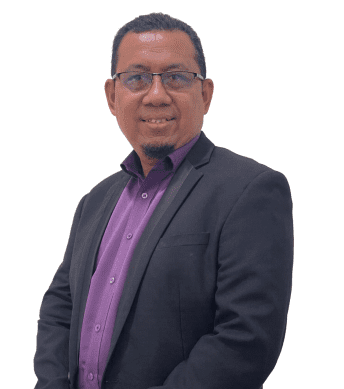
Assoc. Prof. Dr. Ahmad Zabidi Abdul Razak
Dr. Ahmad Zabidi Bin Abdul Razak is an Associate Professor at the Department of Educational Management, Planning and Policy, Faculty of Education, Universiti Malaya, and he is currently theDean, Faculty of Education.
He is a Former Director of Corporate Performance Centre (CPC) Universiti Malaya, the Deputy Dean Research Cluster (Social Advancement and Happiness) Universiti Malaya and the Deputy Dean (Research and Development), Faculty of Education.
He received his Bachelor Degree and Master degree from Universiti Malaya and PhD degree from Massey University, New Zealand. His area of specialization and research is in human resource management in education; and educational management and leadership. He has headed several researches in the area of human resource management in education; and educational management and leadership, funded by various agencies.
He has authored and co-authored several books, articles and research reports in the area of human resource management in education; educational management and leadership; and education in general. http://orcid.org/0000-0002-8202-0595

Dr. Fazlinah bt. Said
Dr. Fazlinah Said is an esteemed educator and academic leader with a rich and diverse background in language, literature, and curriculum development. Currently serving as the Deputy Director of the Social Sciences Sector , Curriculum Development Division ,Ministry of Education. Fazlinah has played a pivotal role in shaping the national curriculum for primary and secondary schools in Malaysia since 2017 till now, Fazlinah has demonstrated exceptional leadership and expertise in managing the development of curricula for a wide range of subjects, including 11 languages (Bahasa Melayu, English, Bahasa Cina, Bahasa Tamil, Japanese, French, German, Korean, Bahasa Iban, Bahasa Kadazandusun dan Bahasa Semai) and various social science disciplines.
Prior to assuming these prestigious roles, Fazlinah served as an English Lecturer and Academic Secretary at IPG Kampus Bahasa Antarabangsa, KL , where she imparted knowledge and wisdom to students enrolled in Foundation and Undergraduate TESL Programmes. With a focus on courses such as ELT Methodology, Classroom Management, Linguistics, Phonology for ELT, Children's Literature, and Curriculum Studies, Fazlinah has left an indelible mark on the academic landscape.
Throughout her career, Fazlinah has exemplified dedication and excellence, earning a Ph.D. in Children’s Literature from the International Islamic University Malaysia in 2023 and a Master's in Education (Curriculum and Instruction) from the University of Houston, Texas, USA.


